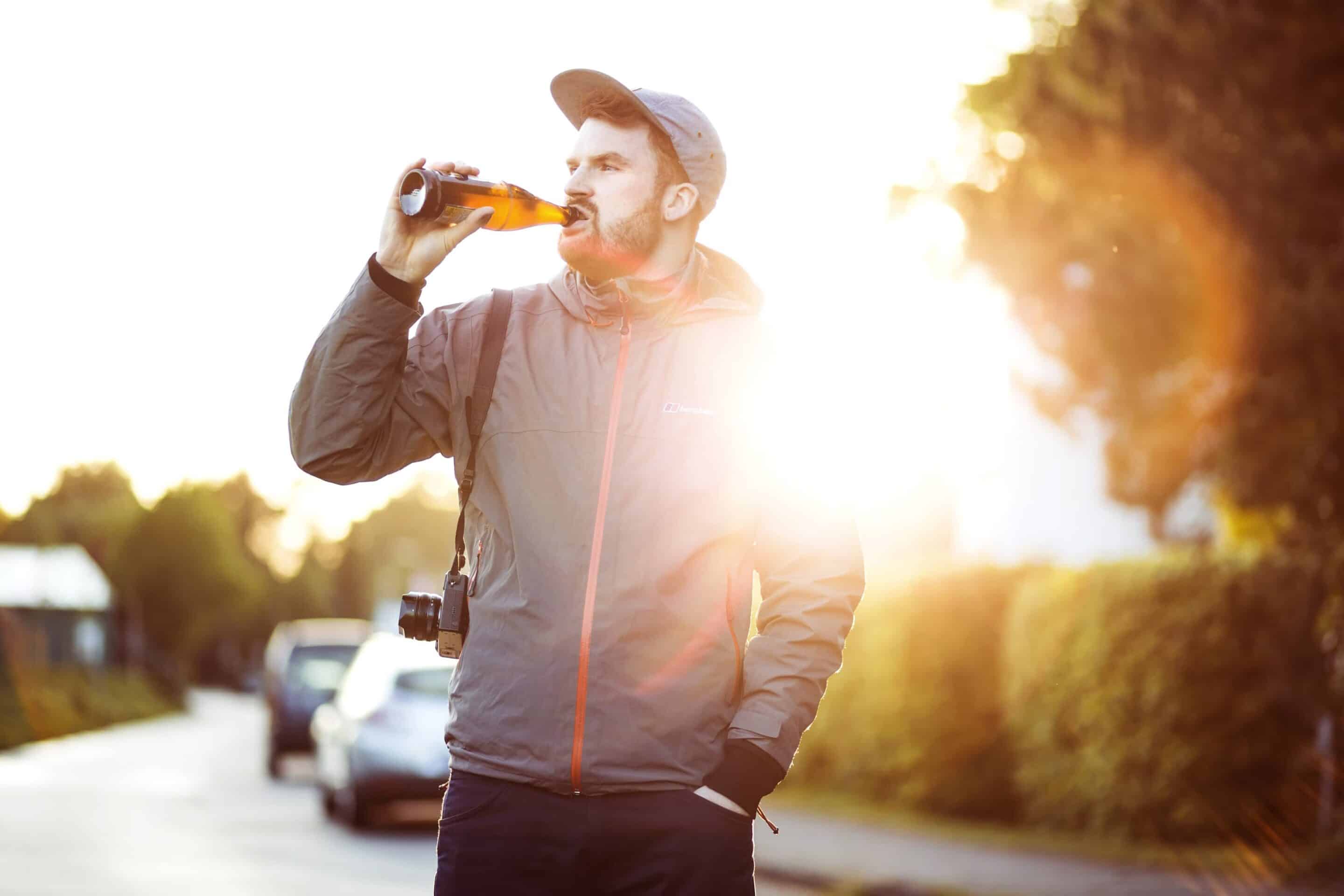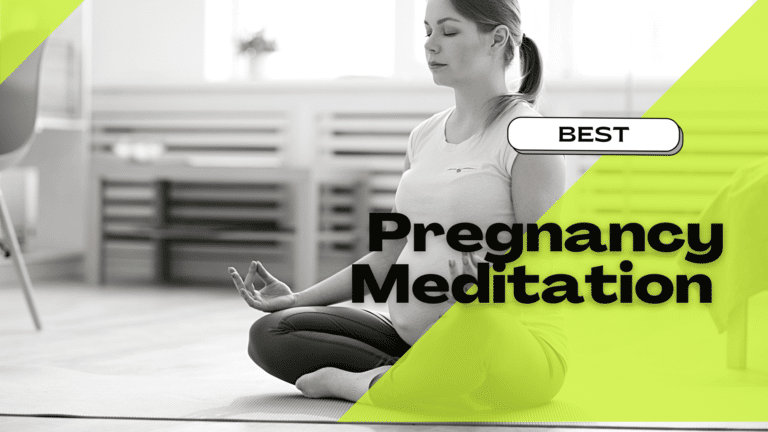Mindful Drinking: Strategies For Moderation And Responsible Consumption
Published on February 13, 2024 – Last Updated on February 13, 2024
In a busy world where stress levels are high and social gatherings often revolve around alcohol, it’s essential to approach drinking with mindfulness. Mindful drinking isn’t about abstaining from alcohol altogether. Instead, it’s about developing a healthier relationship with alcohol, meaning being conscious of why, how much, and how often you’re drinking.
However, it’s crucial to remember that moderation needs to be tailored to individual circumstances, and professional help should be sought when necessary. To start, here are some effective strategies for moderation and responsible consumption:
1. Understand Mindful Drinking
Before you consider behavioral health services from providers like Alvarado Parkway Institute, it’s crucial to learn the basics of mindful drinking. Generally, it involves being fully present and conscious of your drinking habits, recognizing the effects of alcohol on your body and mind, and making intentional choices about your alcohol consumption. This approach can lead to healthier habits, reduced alcohol intake, and a more balanced lifestyle.
In addition, mindful drinking encourages you to question the role alcohol plays in your life and to reflect on how each drinking occasion aligns with your overall well-being and health goals. Beyond reducing alcohol consumption, it’s also about making informed choices that support your physical and emotional health, enhancing your ability to live life to its fullest without reliance on substances.
2. Set Clear Intentions
Establishing clear intentions is more than just deciding to drink less—it involves creating a detailed plan that aligns with your overall goals and lifestyle. This step is about making a commitment to yourself and setting the stage for success in mindful drinking. Here are a few ways to solidify your intentions:
- Define Specific Objectives: Instead of a vague ‘drink less,’ aim for concrete targets, like ‘limit to two drinks per social event’ or ‘alcohol-free days on weekdays.’ This specificity makes your intentions actionable and measurable.
- Identify Triggers And Solutions: Recognize situations or emotions that prompt you to drink more than intended. Plan strategies to manage these triggers, such as opting for a non-alcoholic drink or engaging in a different activity to distract or soothe yourself.
- Visualize Success: Spend time imagining how sticking to your intentions will improve your life. Whether it’s waking up with more energy, feeling prouder of your self-control, or having more meaningful interactions with loved ones, visualization can be a powerful motivator.
By setting clear intentions, it’s much easier to plot a course for mindful drinking and consider strategies like meditation. This way, it may help you embed your goals in your daily life, allowing you to navigate choices and challenges with a clear focus.
3. Know Your Limits
Understanding your personal limits is crucial in the journey of mindful drinking. This goes beyond just counting drinks—it’s about recognizing the subtle signs your body gives when it’s had enough. Here are a few pointers to help you gauge your limits:
- Pay Attention To Physical Cues: Notice any changes in your speech, balance, or mood. These can be early signs that you’ve reached or are nearing your limit.
- Reflect On Past Experiences: Think about times you felt you had too much to drink. What was your limit then? Use this as a benchmark to avoid crossing that line again.
- Listen To Your Body: Fatigue, a sense of discomfort, or feeling unwell are all indicators that it’s time to stop. Trust your body’s signals.
By tuning into these aspects, you can better understand your limits and ensure that you stay within a safe and enjoyable range of alcohol consumption.
4. Slow Down
Slowing down when drinking can significantly alter your alcohol consumption experience, leading to a more enjoyable and responsible relationship with alcohol. Here are a few ways to put this into practice:
- Sip Slowly: Instead of taking large gulps, try sipping your drink slowly. It allows you to truly taste and enjoy what you’re drinking, making the experience last longer.
- Pause Between Drinks: After finishing a drink, wait for a while before starting another. This break gives your body time to process the alcohol and helps you gauge your level of intoxication.
Incorporating these habits may encourage a pace that supports mindful drinking. It’s about enjoying the moment and the company you’re with rather than rushing through your drinks.
5. Alternate With Non-Alcoholic Beverages
Incorporating non-alcoholic alternatives into your routine is a strategic way to maintain your social life while sticking to your mindful drinking goals. These alternatives can mimic the experience of drinking alcohol, offering social and psychological comforts without the aftereffects. Here are a few practical tips:
- Experiment With Mocktails: Try different recipes for mocktails that use fresh juices, herbs, and soda water to create drinks that are just as satisfying as their alcoholic counterparts.
- Hydrate With Water: Make it a habit to drink a glass of water between alcoholic drinks. This helps you stay hydrated and slows down your alcohol consumption.
- Discover Non-Alcoholic Spirits: The market is now full of non-alcoholic spirits that replicate the taste of gin, whiskey, and other liquors. Use them to make alcohol-free versions of your favorite cocktails.
Alternating with non-alcoholic beverages may help moderate your alcohol intake and discover new and enjoyable drink options. This approach allows you to participate in social occasions fully without compromising your mindful drinking objectives.
6. Eat Before And While You Drink
Eating before and while you drink is a strategy that can significantly impact how your body processes alcohol. Food in your stomach slows down the absorption of alcohol into your bloodstream, helping you maintain control and reduce the likelihood of overindulgence. Here are a few tips:
- Opt For Protein-Rich And High-Fiber Foods: These types of foods take longer to digest, prolonging the absorption process. Think lean meats, nuts, legumes, and whole grains.
- Snack Smartly While Drinking: Instead of reaching for salty or processed snacks, choose options like cheese and crackers, fruit, or vegetables with hummus. These choices can help maintain your energy levels and hydration, contributing to a more enjoyable and controlled drinking experience.
Incorporating these eating habits into your mindful drinking plan can make a noticeable difference in how alcohol affects you, allowing you to engage more fully and responsibly in social settings.

7. Choose Quality Over Quantity
Opting for drinks that you genuinely enjoy over mindlessly consuming alcohol can profoundly change your drinking experience. This approach encourages you to:
- Appreciate the craftsmanship behind a finely brewed craft beer, a well-aged wine, or a skillfully mixed cocktail. Taking the time to understand the story and effort that goes into each drink can enhance your appreciation and enjoyment.
- Focus on the sensory experiences each drink offers, such as the complex flavor profiles, aromas, and textures. This mindful appreciation makes you more likely to sip slowly and savor each drink, reducing the urge to overindulge.
By prioritizing quality over quantity, you’re not only likely to enjoy your drinking experiences more but also to consume less overall. This strategy is critical in practicing moderation and responsible consumption, leading to a healthier and more enjoyable lifestyle.
8. Implement Dry Days
Allocating specific days of the week as alcohol-free, or ‘dry’ days, is a practical strategy to ensure moderation. This approach provides your body and mind with regular breaks from alcohol, fostering healthier habits and reducing overall consumption. Here are some tips to implement dry days:
- Plan Ahead: Look at your calendar and choose days that are naturally easier for you to avoid drinking, perhaps weekdays or days with fewer social obligations.
- Create New Rituals: Use these dry days to establish new routines that don’t involve alcohol. This could mean exploring a new hobby, indulging in self-care, or enjoying outdoor activities.
- Celebrate Your Success: Each dry day is an achievement. Acknowledge your discipline and how it contributes to your broader goals of mindful drinking.
Including dry days into your schedule may help cut down on alcohol and allow you to discover alternative ways to relax and enjoy your time. This tactic is a cornerstone of mindful drinking, which can be the key to achieving a balanced lifestyle.
9. Cultivate Awareness
Becoming truly mindful about your drinking habits starts with cultivating awareness. This involves being conscious of your triggers, the situations that prompt you to drink, and how alcohol affects your mood and body. Here are a few strategies to enhance your awareness:
- Reflect Before You Drink: Take a moment to ask yourself why you’re reaching for a drink. Is it out of habit, social pressure, or maybe to cope with stress? Understanding your motivations can help you make more conscious choices.
- Tune Into Your Body: Notice how your body feels before, during, and after drinking. This can include recognizing the signs of intoxication and understanding how different types and amounts of alcohol affect you physically and emotionally.
By paying close attention to these aspects, you’ll develop a deeper understanding of your relationship with alcohol. This awareness is crucial in making changes that align with your goals for moderation and responsible consumption.
10. Seek Support
Don’t underestimate the power of support on your mindful drinking journey. Whether it’s from friends, family, or a professional, having someone to share your experiences, successes, and challenges with can make all the difference. Here are a few ways to seek out support:
- Join A Community: Look for online forums or local groups focused on mindful drinking or moderation. These communities offer a wealth of advice, encouragement, and understanding from people on similar paths.
- Find A Mindful Drinking Buddy: Partner up with a friend who also wants to drink more mindfully. You can motivate each other, share tips, and hold one another accountable.
- Consider Professional Help: If you’re finding it particularly challenging to moderate your drinking, speaking to a therapist or counselor skilled in addiction or behavioral change can provide personalized strategies and support.
Embracing support not only bolsters your resolve but also enriches your journey with shared learning and camaraderie. Remember, you’re not alone in this, and seeking support is a sign of strength and commitment to your goals.
11. Practice Self-Compassion
Embarking on a journey towards mindful drinking is an act of self-care. However, it’s essential to approach this path with kindness and understanding towards oneself. Here are a few ways to practice self-compassion:
- Recognize that perfection is not the goal. Mistakes are part of the learning process, and it’s okay not to get everything right the first time.
- Speak to yourself with the same kindness and encouragement you would offer a good friend. Self-critical thoughts can be counterproductive.
- Allow yourself the space to feel and process emotions without judgment. Sometimes, emotions can trigger drinking habits. Acknowledging them openly can help you understand and manage these triggers more effectively.
- Celebrate your successes, no matter how small. Each step forward is a victory worth recognizing.
By weaving self-compassion into your mindful drinking journey, you create a more sustainable and positive path forward. This approach not only makes the process more manageable but also enriches your overall well-being.
12. Cultivate A Supportive Environment
Cultivating a supportive environment is about more than just the company you keep; it’s about creating a space that aligns with your goals and values. Here are a few ways to ensure your surroundings bolster your mindful drinking journey:
- Choose Social Settings Wisely: Opt for gatherings that focus on activities other than drinking. Whether it’s a hiking group, a book club, or a cooking class, engaging in shared interests can reduce the emphasis on alcohol.
- Communicate Your Goals: Let your friends and family know about your mindful drinking journey. When your circle understands your goals, they’re more likely to offer support rather than temptation.
- Redesign Your Living Space: If your home environment tempts you to drink more than you intend, consider making changes. It might mean keeping less alcohol on hand or redesigning your space to promote relaxation and activities that don’t involve drinking.
By taking proactive steps to shape your environment, you’re setting yourself up for success. Surrounding yourself with positive influences and supportive people can make all the difference in achieving your mindful drinking objectives.
Conclusion
Mindful drinking is about enjoying alcohol responsibly and with intention. It’s a practice that encourages you to listen to your body, set boundaries, and find balance. By adopting the strategies outlined above, you can cultivate a healthier relationship with alcohol, one that enhances your life rather than detracting from it.




